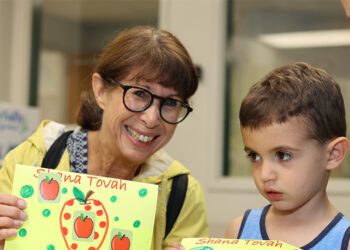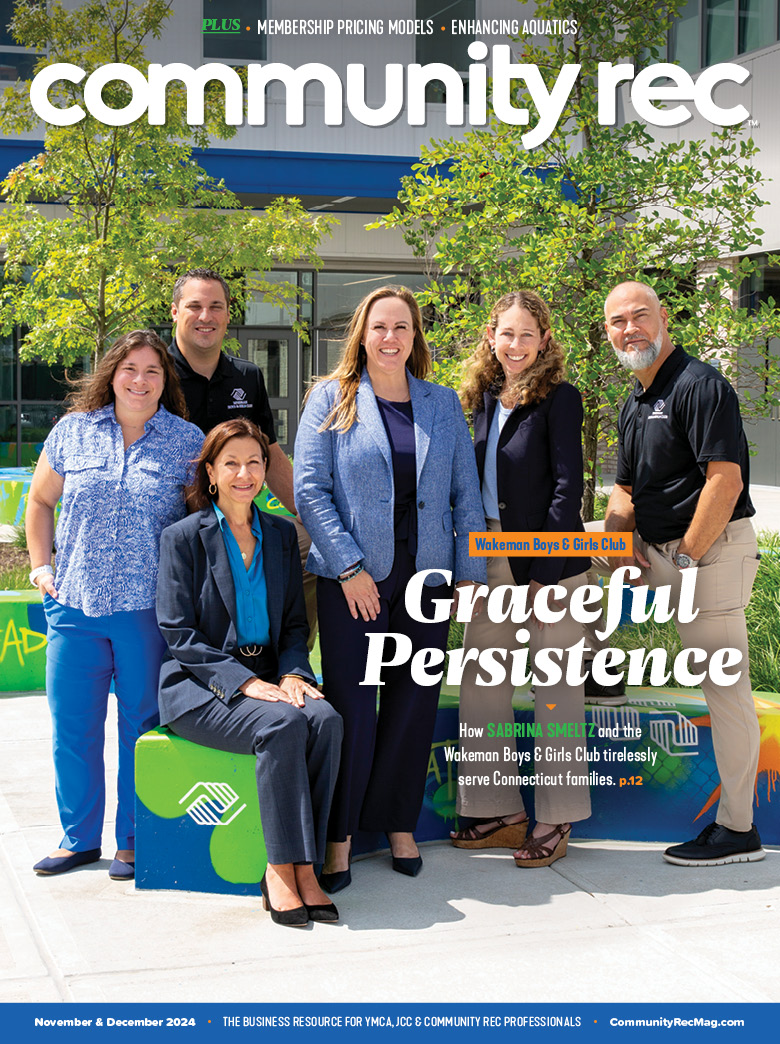The David Posnack JCC in Fort Lauderdale, Florida, has been bringing joy to children battling cancer since 2009 through their Sunrise Day Camp under the Sunrise Association. However, not every child can experience the fun if they’re receiving on-going treatment in the hospital. That’s why the J holds the Sunrise on Wheels program which brings a trunk filled with activities and fun to the local children’s hospital.
“We can’t change the outcome of a diagnosis, but we can change the outcome of a visit,” said Doug Pennington, the ambassador of fun at the David Posnack JCC. “A smile is the best medicine, and Sunrise on Wheels is ready to deliver a trunk load of it.”
Below is an interview with collective answers from Pennington and Arlene Abrams, the special services operations director at the JCC who share more about the program.
Can you provide an overview of the program and what you do during visits?
David Posnack JCC: Sunrise on Wheels brings the joys of childhood to children undergoing treatment in the pediatric oncology units of participating hospitals. With the help of dedicated volunteers and a rainbow trunk brimming with toys, games and activities, we transform what could be a difficult day into one full of fun and laughter.
Our supplies are suited for different age groups. We introduce ourselves to the parents and caregivers of the patients. We actively engage and interact with the patients while they undergo their treatments. This is done at their bedside or the common area.
Why was the Sunrise on Wheels program started?
DPJ:
- Joyful Distraction. We provide a safe haven where children can escape treatment anxieties and simply be kids again, socializing, smiling and forgetting their worries for a while.
- Maintaining Normalcy. Cancer disrupts routines, but Sunrise on Wheels brings structure and familiarity through engaging activities and keeping children connected to their love of play.
- Building Confidence. Our diverse activities allow children to discover new talents, fostering a sense of accomplishment and boosting their self-esteem.
How does the program positively impact the children you visit?
DPJ: Through our visits, we provide the children with a happy distraction where they can forget why they’re in the hospital. We bring smiles and laughter to each child and their parent. It also provides the parent some respite for relaxation or to tend to their own jobs/personal matters.
How does the program uplift your community?
DPJ: We’re able to give comfort to children and parents, but more importantly the children are treated like children — not patients — and can just play and sing. They know they are not forgotten sitting in their hospital beds. There’s someone there just to make them smile. When children are joyful, their families have hope and that comes back to the entire community.
What are your top lessons or takeaways from facilitating the program?
DPJ: It is a much-needed program in our community. It brings us joy to do this. We see first-hand how happy the children are when they see the trunk come into the room. Their whole demeanor changes. It puts smiles and joy on our own faces.
What are your top tips for facilitating similar programming?
DPJ:
- You have to carefully select your staff. They must realize they are working with children with cancer.
- The staff should be able to assess the floor when they walk in and rely on the medial staff for guidance. They know the patients more than you ever will. Have a great relationship with the hospital and their staff.
- Most importantly, be happy, positive, energetic, ready to play, laugh and smile a lot.
Want more resources like this sent straight to your inbox each week? Sign up for a digital subscription here.










